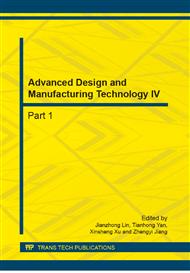p.2049
p.2057
p.2063
p.2067
p.2071
p.2076
p.2081
p.2085
p.2090
Information-Technology-Enabled Teaching Paradigm Reform Based on Massive Open Online Courses and Flipped Classroom
Abstract:
In this paper, we propose a novel teaching paradigm called "MOOCs + flipped classroom" and discuss the adoption of information technology to support this teaching paradigm. The core ideas, the technical framework, the key supporting technologies and the advantages of this paradigm are introduced. The practice shows the validity of this emerging teaching paradigm.
Info:
Periodical:
Pages:
2081-2084
Citation:
Online since:
September 2014
Authors:
Price:
Сopyright:
© 2014 Trans Tech Publications Ltd. All Rights Reserved
Share:
Citation:


